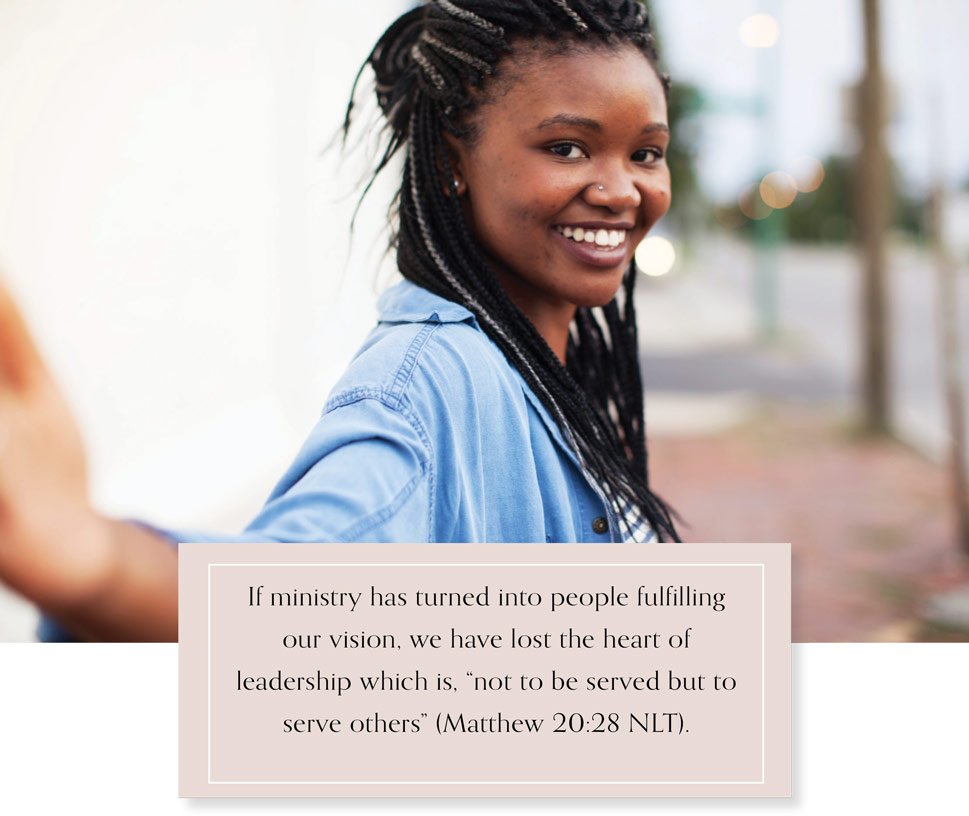Leadership: The Privilege of Serving
Written by Debby Baril
In times of transition, reflection and evaluation, or even in moments of out-and-out wondering, a simple question can have a profound and sometimes even life-altering impact.
After years of ministry, hearing stories of failures, seeing ministries spinning their wheels while others thrived, and wondering what this next transition would bring me into, a piercing question arrested me:
Are you using people to serve your vision, or are you using your vision to serve people?
No one can fulfill a vision or calling without others because each one is a member of a whole, and how we view our calling and gifts in light of the whole will make all the difference in the world.
“Just as our bodies have many parts and each part has a special function, 5 so it is with Christ’s body. We are many parts of one body, and we all belong to each other. 6 In his grace, God has given us different gifts for doing certain things well.” (Romans 12:4-6 NLT)
If my vision flows out to serve the rest of the body, and every other member’s gifts and callings flow out to serve the rest of the body, the whole body is supplied, resulting in strength, health, and growth.
Jesus “makes the whole body fit together perfectly. As each part does its own special work, it helps the other parts grow, so that the whole body is healthy and growing and full of love.” (Ephesians 4:16 NLT)
Here’s what I’ve observed:
Leaders who expect people to fulfill their vision will inevitably drain those very people, along with their resources, and creativity. They themselves may fall into disappointment and even go so far as to blame ‘the people’ when things don’t go as expected, when the vision continually seems out of reach.
If ministry has turned into people fulfilling our vision, we have lost the heart of leadership which is, “not to be served but to serve others.” (Matthew 20:28 NLT)
In contrast, leaders who serve others through their calling and gifts inevitably draw more people, resources, and creativity as there is a mutual fulfillment of visions and dreams. ‘The people’ feel empowered, a part of something bigger, and valued for their input rather than ‘used’. I see this in Women-Together, and it truly is a beautiful thing.
When we learn that the vision, gifts, and calling are not for us personally, but for others we then move into true leadership – serving rather than being served, which results in the Body of Christ being fully functional, without lack, healthy and growing in maturity.
Leadership is a privilege by which we serve. When we start asking how we can use our gifts, vision, and calling to bless others we may be surprised by the doors that open and the people who come alongside.

